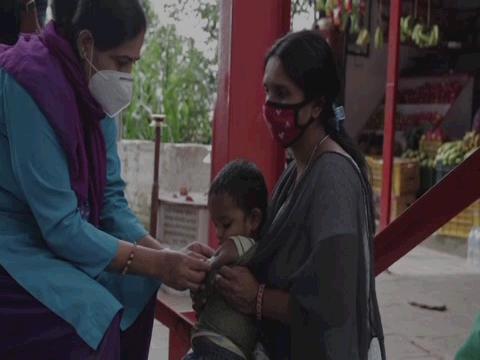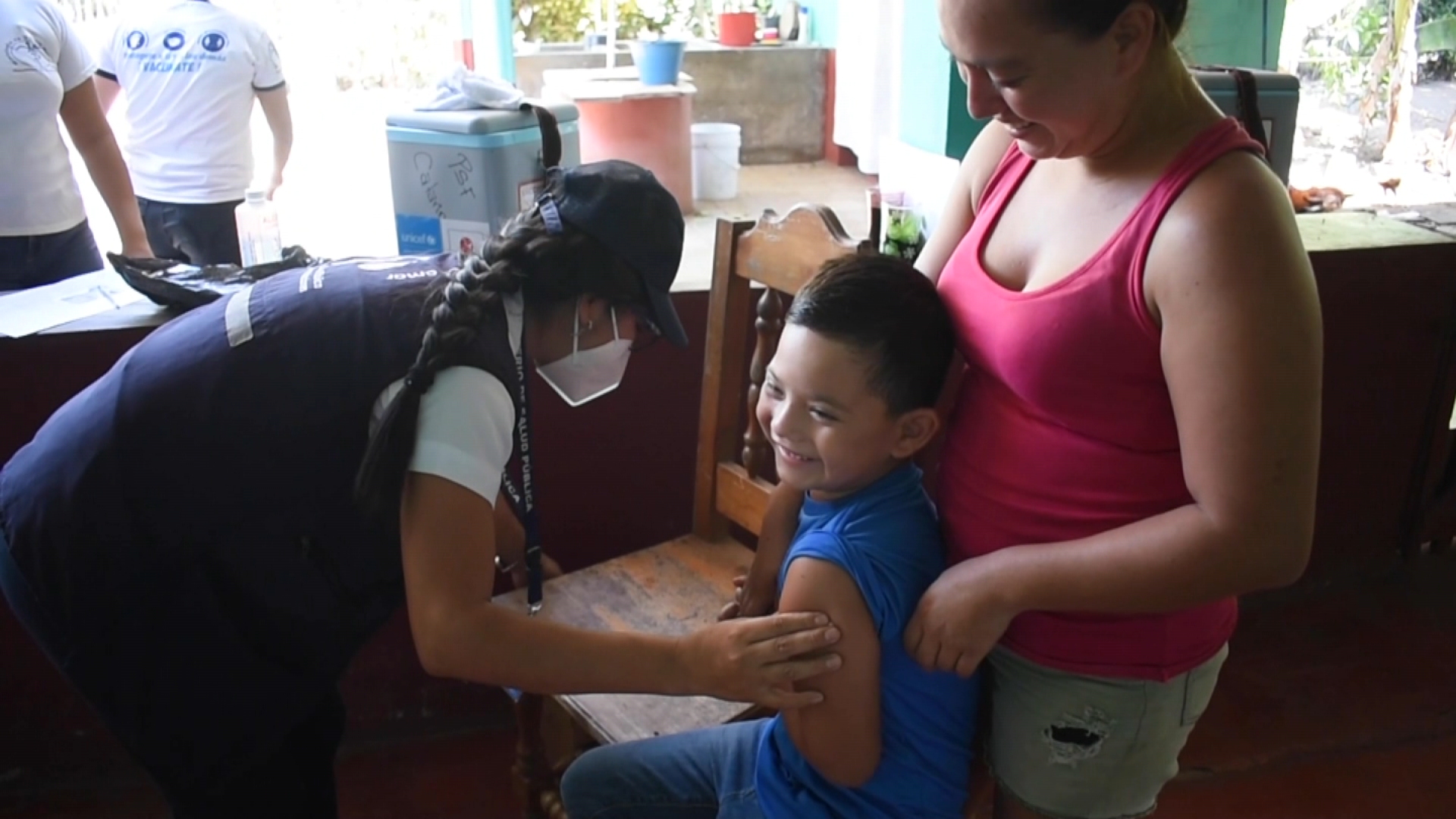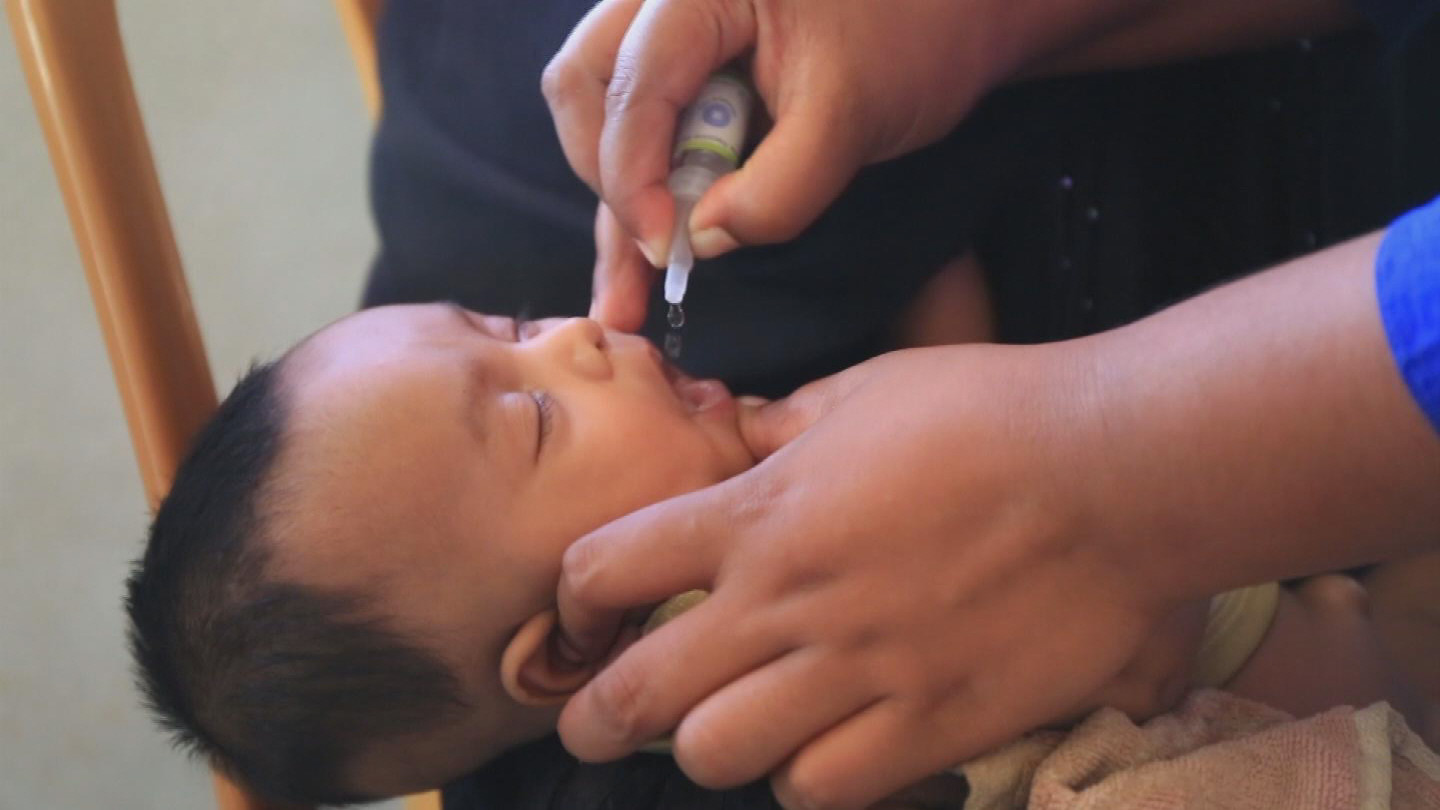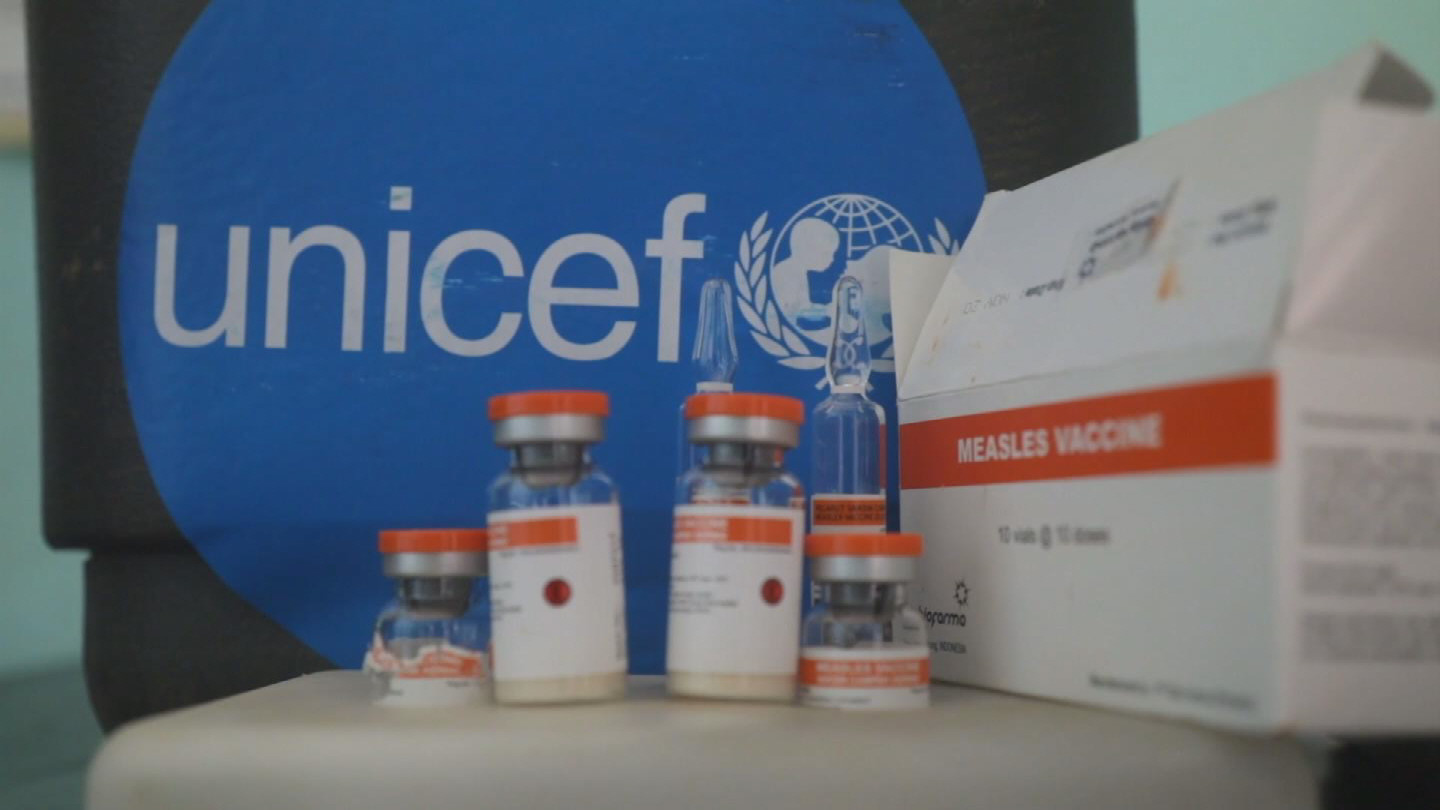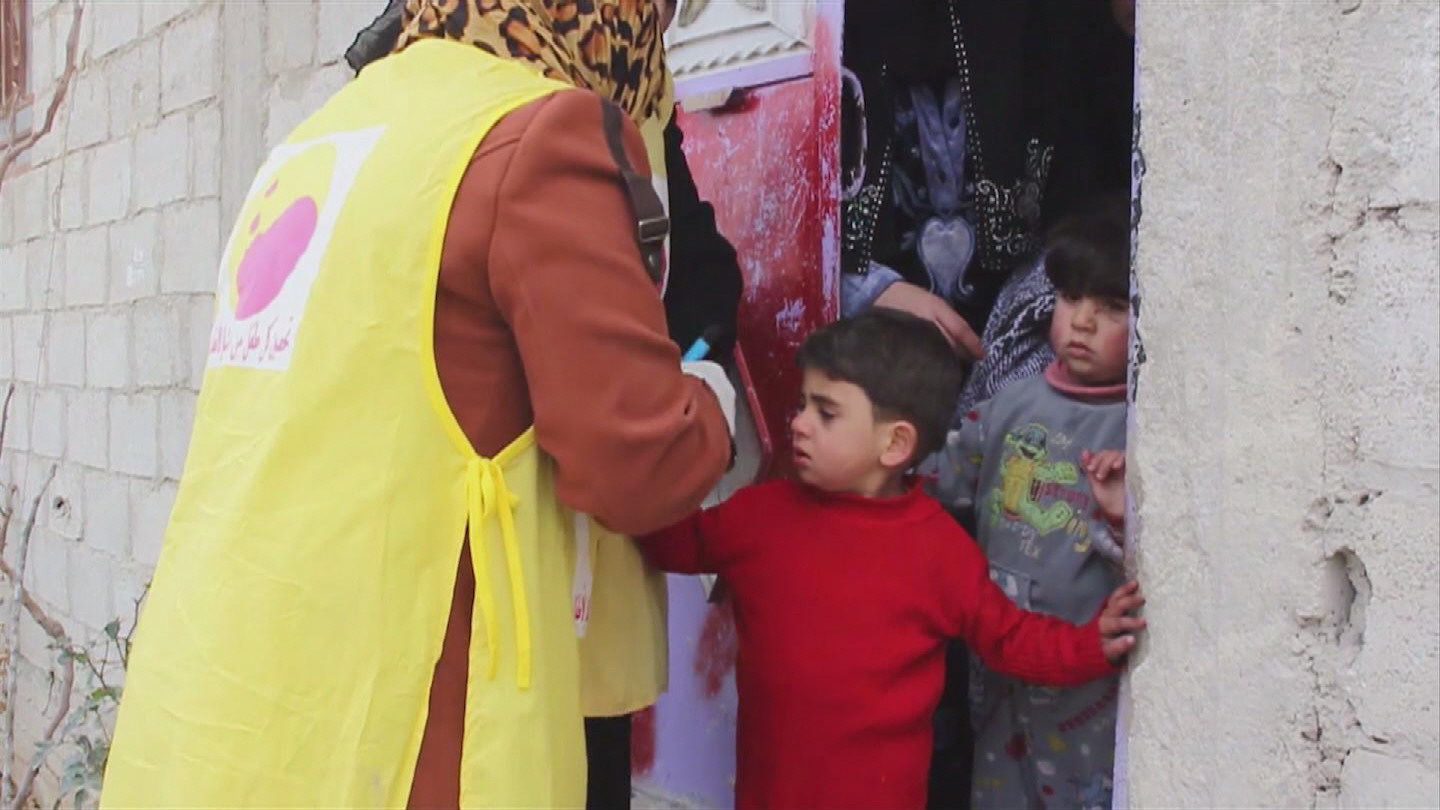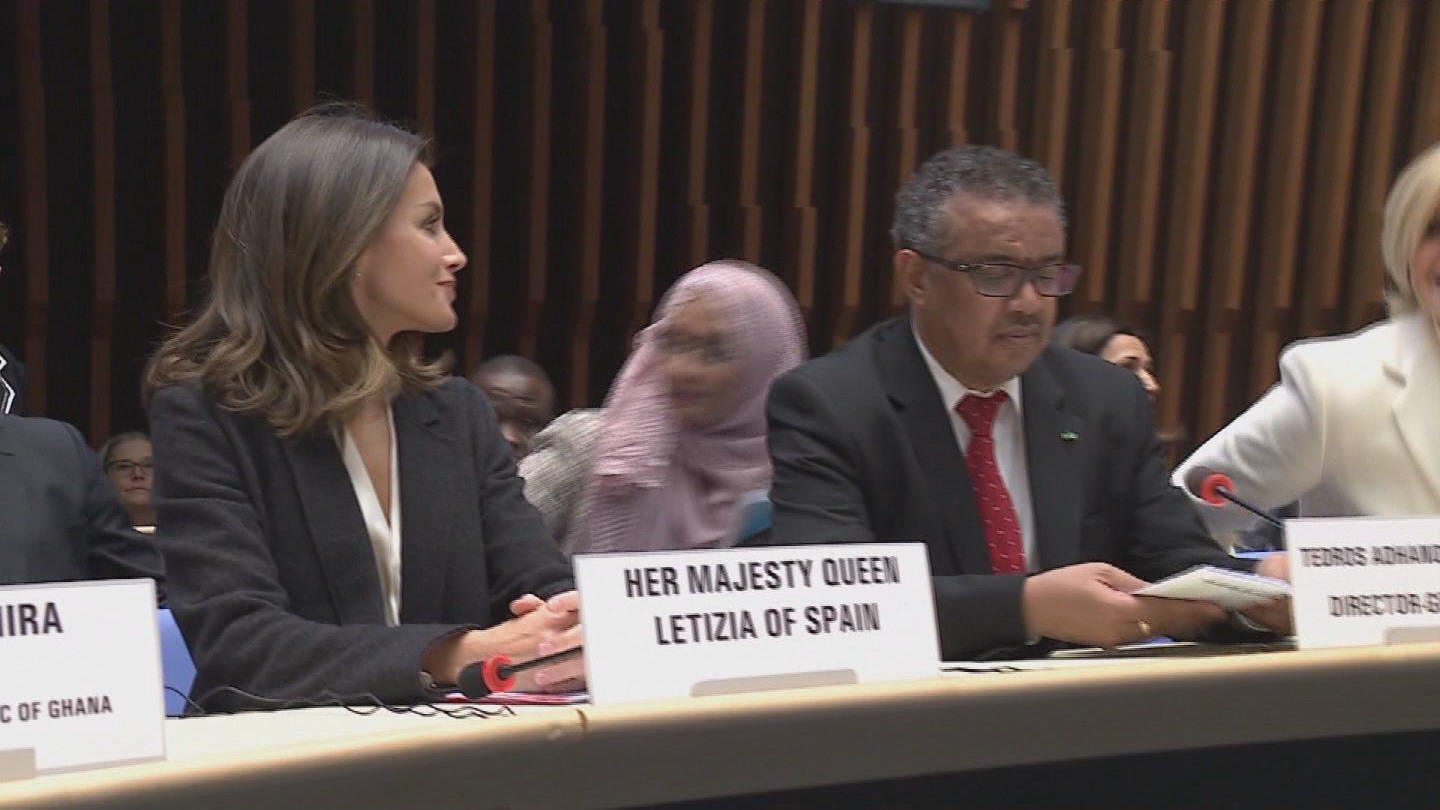WHO / IMMUNIZATION WEEK PRESSER
STORY: WHO / IMMUNIZATION WEEK PRESSER
TRT: 7:26
SOURCE: WHO
RESTRICTIONS: PLEASE CREDIT WHO ON SCREEN
LANGUAGE: ENGLISH / NATS
DATELINE: 24 APRIL 2024, GENEVA, SWITZERLAND
1. Wide Shot, press briefing room
2. SOUNDBITE (English) Dr Tedros Adhanom Ghebreyesus, WHO Director-General:
“Today marks the start of World Immunization Week – a time to celebrate some of the most powerful inventions in history – vaccines. Thanks to vaccines, smallpox has been eradicated, polio is on the brink, and many once-feared diseases can now be easily prevented, including measles, cervical cancer, yellow fever, pneumonia and diarrhoea. Today, 84% of the world’s children have received three doses of the vaccine against diphtheria, tetanus and pertussis – which is used as a marker of global vaccine coverage. But only fifty years ago, in 1974, fewer than 5% of infants globally were vaccinated. That was the year WHO launched the Expanded Programme on Immunization, or EPI.”
3. Wide Shot, press briefing room
4. SOUNDBITE (English) Dr Tedros Adhanom Ghebreyesus, WHO Director-General:
“EPI helps millions of children, adolescents and adults access vaccines against 30 diseases. A new study led by WHO estimates that EPI has saved at least 154 million lives since 1974 – an average of more than 8000 a day, and 6 every minute of every year for the past 50 years. Thanks to immunization, a child born today is 40% more likely to see their fifth birthday than a child born 50 years ago. And more and more lives are being saved as more and more diseases are becoming vaccine preventable, with newer vaccines against COVID-19, malaria, cholera, dengue, meningitis, RSV, Ebola and mpox, and more in development.”
5. Wide Shot, press briefing room
6. SOUNDBITE (English) Dr Tedros Adhanom Ghebreyesus, WHO Director-General:
“Today, we are launching a joint campaign called “Humanly Possible”, calling on world leaders to advocate for, support and fund vaccines and the immunization programmes that deliver these lifesaving products.”
7. Wide Shot, press briefing room
8. SOUNDBITE (English) Dr Kate O'Brien, Director, Immunization Vaccines and Biologicals, WHO:
“The humanly possible campaign is about this year's celebration of vaccines and it is about recognising the 50 years. It is about inspiring what more we can do now. And it is about really envisioning what the next years are going to be about, in order to achieve the decade-long goals. But also what the next 50 years are about. It is about all the things which are humanly possible to stamp out vaccine-preventable diseases, develop new vaccines and adapt the vaccine programme to the future that we will be facing, that is also a climate-adapted future.”
9. Wide Shot, press briefing room
10. SOUNDBITE (English) Dr Tedros Adhanom Ghebreyesus, WHO Director-General:
“From the world’s oldest vaccine against smallpox, to the newest vaccines against meningitis, malaria and dengue, WHO remains committed to doing everything humanly possible to realise the lifesaving power of vaccines for everyone, everywhere.”
11. Wide Shot, press briefing room
12. SOUNDBITE (English) Dr Tedros Adhanom Ghebreyesus, WHO Director-General:
“One disease for which there was no vaccine 50 years ago – but there is now – is meningitis. Just last month, Nigeria became the first country to roll out the new Men5CV vaccine, which protects against the five major strains of bacterial meningitis in Africa. The campaign aimed to vaccinate 1 million people across several States in northern Nigeria which had been hit hard by meningitis outbreaks.”
13. Wide Shot, press briefing room
14. SOUNDBITE (English) Dr Tedros Adhanom Ghebreyesus, WHO Director-General:
“Another disease for which vaccines have only recently been developed is malaria. In the past two years, WHO has recommended the world’s first two malaria vaccines, which are now being rolled out in Africa and which could save tens of thousands of young lives every year.
Burkina Faso, Cameroon, Ghana, Kenya, Malawi and Sierra Leone are already delivering malaria vaccines through national immunization programmes, and many more countries are planning to introduce them in the coming weeks and throughout the year.”
15. Wide Shot, press briefing room
16. SOUNDBITE (English) Dr Maria Van Kerkhove, Director (a.i.) Epidemic and Pandemic Preparedness and Prevention, WHO:
“With H5N1 we have not seen human-to-human transmission in the recent cases. I think that is important because there's a lot of news right now on avian influenza. We are concerned of this particular virus because we know influenza has the potential to cause epidemics, has the potential to cause pandemics. And that’s why we have a global system in place to monitor, detect, to rapidly do risk assessments, to look at viruses that could potential I will be used in vaccines as we go forward. There is a lot of work in place right now. But right now, I can tell you, human infections of H5N1 have not, we've only had 28 since 2021 and we have not seen any human-to-human transmission among those.”
17. Wide Shot, press briefing room
18. SOUNDBITE (English) Dr Kate O'Brien, Director, Immunization Vaccines and Biologicals, WHO:
“In 2022, there were 136,000 children who lost their lives from measles, a completely preventable disease and there were over 9 million cases around the world. We know that last year, the number of cases when up by about 70% and we are still working on the data around how many deaths likely occurred last year.”
19. Wide Shot, press briefing room
20. SOUNDBITE (English) Dr Kate O'Brien, Director, Immunization Vaccines and Biologicals, WHO:
“The main reason that children don't receive measles vaccine has to do with the ability for them to access vaccine, the ability of programmes to get to all of the places in the world, to every child, everywhere, every village, every city, every place where a child is in order to vaccinate them and that is an ambitious that is humanly possible.”
21. Wide Shot, press briefing room
22. SOUNDBITE (English) Dr Michael Ryan, Executive Director, WHO Health Emergencies Programme:
“Congo is a country suffering multiple challenges. We have measles outbreaks in Kivu. It is really important as we support Congo that we look to the broader priorities of health. Mpox may be an issue and it is an issue in Congo but it is not the only issue and we have to work with the ministry to ensure we use every opportunity for vaccination and if we are going to invest in larger scale immunization programmes on mpox we can’t forget issues like measles. It is very easy to run vertically and solve the problem you think you have. But the problems are much deeper, much broader.”
23. Wide Shot, press briefing room
24. SOUNDBITE (English) Dr Michael Ryan, Executive Director, WHO Health Emergencies Programme:
“I remind everyone that in two-and-a-half, three years of mpox response there's not been a single penny of donor money invested at a global level for controlling mpox. So while the concerns of the world are very well noted I don't see the concerns of the world reflected in the investment of resources needed to actually contain this virus.”
25. Wide Shot, press briefing room
WHO Director-General Tedros Adhanom Ghebreyesus said, “Today marks the start of World Immunization Week – a time to celebrate some of the most powerful inventions in history – vaccines.”
Speaking to reporters today (24 Apr) in Geneva, Tedros noted that thanks to vaccines, smallpox has been eradicated, adding that “polio is on the brink, and many once-feared diseases can now be easily prevented, including measles, cervical cancer, yellow fever, pneumonia and diarrhea. Today, 84% of the world’s children have received three doses of the vaccine against diphtheria, tetanus and pertussis – which is used as a marker of global vaccine coverage. But only fifty years ago, in 1974, fewer than 5% of infants globally were vaccinated. That was the year WHO launched the Expanded Programme on Immunization, or EPI.”
He also said, “EPI helps millions of children, adolescents and adults access vaccines against 30 diseases. A new study led by WHO estimates that EPI has saved at least 154 million lives since 1974 – an average of more than 8000 a day, and 6 every minute of every year for the past 50 years. Thanks to immunization, a child born today is 40% more likely to see their fifth birthday than a child born 50 years ago. And more and more lives are being saved as more and more diseases are becoming vaccine preventable, with newer vaccines against COVID-19, malaria, cholera, dengue, meningitis, RSV, Ebola and mpox, and more in development.”
Tedros added, “Today, we are launching a joint campaign called “Humanly Possible”, calling on world leaders to advocate for, support and fund vaccines and the immunization programmes that deliver these lifesaving products.”
Also speaking at the briefing, Dr Kate O'Brien, Director, Immunization Vaccines and Biologicals, said, “The humanly possible campaign is about this year's celebration of vaccines and it is about recognising the 50 years. It is about inspiring what more we can do now. And it is about really envisioning what the next years are going to be about, in order to achieve the decade-long goals. But also what the next 50 years are about. It is about all the things which are humanly possible to stamp out vaccine-preventable diseases, develop new vaccines and adapt the vaccine programme to the future that we will be facing, that is also a climate-adapted future.”
Dr Tedros Adhanom Ghebreyesus, WHO Director-General, also said, “From the world’s oldest vaccine against smallpox, to the newest vaccines against meningitis, malaria and dengue, WHO remains committed to doing everything humanly possible to realise the lifesaving power of vaccines for everyone, everywhere.”
He added, “One disease for which there was no vaccine 50 years ago – but there is now – is meningitis. Just last month, Nigeria became the first country to roll out the new Men5CV vaccine, which protects against the five major strains of bacterial meningitis in Africa. The campaign aimed to vaccinate 1 million people across several States in northern Nigeria which had been hit hard by meningitis outbreaks.”
Tedros also said, “Another disease for which vaccines have only recently been developed is malaria. In the past two years, WHO has recommended the world’s first two malaria vaccines, which are now being rolled out in Africa and which could save tens of thousands of young lives every year,” adding in “Burkina Faso, Cameroon, Ghana, Kenya, Malawi and Sierra Leone are already delivering malaria vaccines through national immunization programmes, and many more countries are planning to introduce them in the coming weeks and throughout the year.”
Dr Maria Van Kerkhove, WHO’s Director (a.i.) Epidemic and Pandemic Preparedness and Prevention, told reporters, “With H5N1 we have not seen human-to-human transmission in the recent cases. I think that is important because there's a lot of news right now on avian influenza.
We are concerned of this particular virus because we know influenza has the potential to cause epidemics, has the potential to cause pandemics. And that’s why we have a global system in place to monitor, detect, to rapidly do risk assessments, to look at viruses that could potential I will be used in vaccines as we go forward. There is a lot of work in place right now. But right now, I can tell you, human infections of H5N1 have not, we've only had 28 since 2021 and we have not seen any human-to-human transmission among those.”
Dr Kate O'Brien, WHO’s Director, Immunization Vaccines and Biologicals, also said, “In 2022, there were 136,000 children who lost their lives from measles, a completely preventable disease and there were over 9 million cases around the world. We know that last year, the number of cases when up by about 70% and we are still working on the data around how many deaths likely occurred last year.”
She added, “The main reason that children don't receive measles vaccine has to do with the ability for them to access vaccine, the ability of programmes to get to all of the places in the world, to every child, everywhere, every village, every city, every place where a child is in order to vaccinate them and that is an ambitious that is humanly possible.”
Dr Michael Ryan, Executive Director, WHO Health Emergencies Programme told reporters, “Congo is a country suffering multiple challenges. We have measles outbreaks in Kivu. It is really important as we support Congo that we look to the broader priorities of health. Mpox may be an issue and it is an issue in Congo but it is not the only issue and we have to work with the ministry to ensure we use every opportunity for vaccination and if we are going to invest in larger scale immunization programmes on mpox we can’t forget issues like measles. It is very easy to run vertically and solve the problem you think you have. But the problems are much deeper, much broader.”
He added, “I remind everyone that in two-and-a-half, three years of mpox response there's not been a single penny of donor money invested at a global level for controlling mpox. So while the concerns of the world are very well noted I don't see the concerns of the world reflected in the investment of resources needed to actually contain this virus.”


